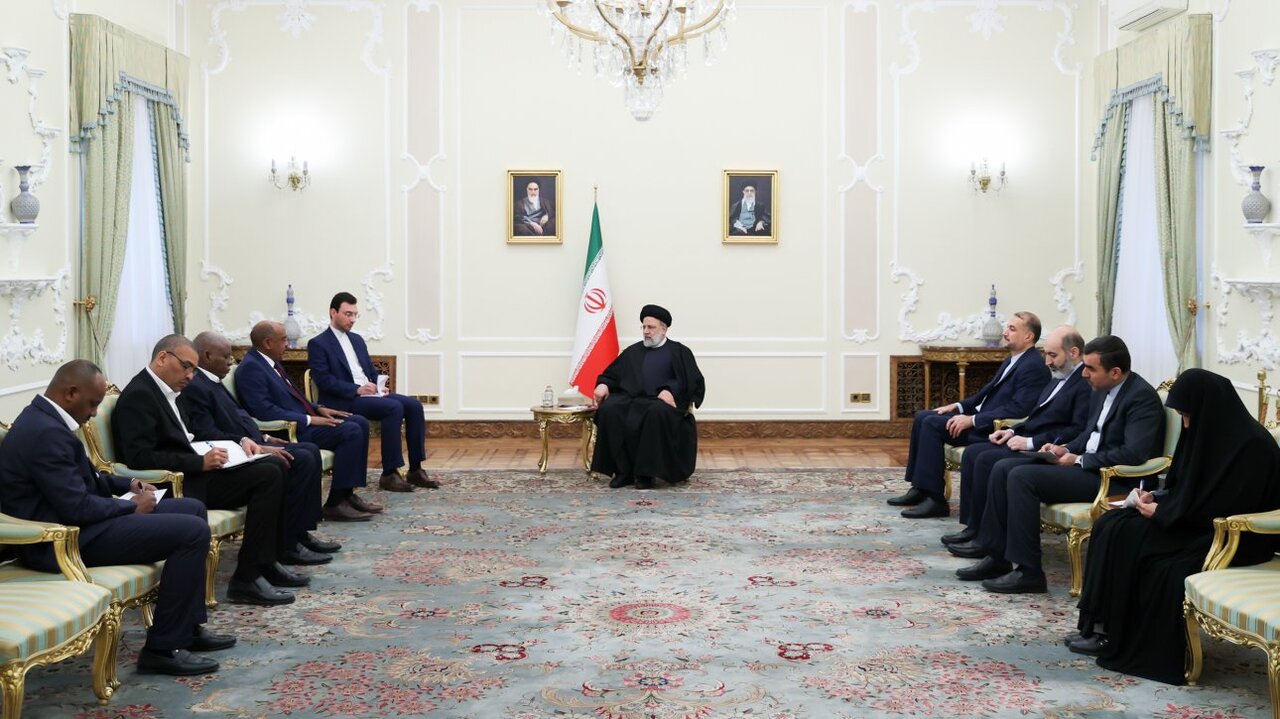Iran (IMNA) - President Raeisi expressed concern over the negligence of some Muslim countries towards this principled policy, stating that it has had a detrimental impact on the Islamic Ummah. He further emphasized that the criminal Israeli regime consistently devises plans to impede the progress of Muslim nations. President Raeisi made it clear that Israel cannot be considered a friend to Muslim countries and is not genuinely interested in their development.
Iranian President Criticizes Muslim Countries Normalizing Relations with Tel Aviv Regime
In a strong statement today, Iranian President Ebrahim Raisi expressed his disapproval of certain Muslim countries' decision to normalize relations with the Tel Aviv regime. President Raisi argued that such actions contradict the inherent nature of these nations.
Highlighting the implications of this normalization, President Raisi stated, "If these countries had severed ties with the Zionists, we would not witness the ongoing attacks and bombings perpetrated against the oppressed and Muslim people of Gaza."
Notably, four Arab countries, namely the United Arab Emirates, Bahrain, Sudan, and Morocco, reached agreements to normalize their relations with Israel in 2020, facilitated by the United States during the presidency of Donald Trump.
UAE-Led Move Sparks Global Condemnation, Palestinians Decry Accords as Stab in the Back
In a significant development led by the United Arab Emirates (UAE), a move has ignited widespread condemnation from Palestinians, nations, and human rights advocates worldwide, particularly within the Muslim world. The Palestinians view these accords as a betrayal and a direct challenge to their ongoing struggle for the liberation of their lands from Israeli occupation.
Furthermore, Iranian President Raeisi expressed full support for Sudan's territorial integrity and the establishment of a robust government in the African nation. He also welcomed the reestablishment of mutual relations after a seven-year hiatus.
Iran and Sudan Reopen Embassies, Restore Diplomatic Relations After Seven-Year Hiatus
Iran and Sudan have taken a momentous step towards strengthening their political, economic, and cultural ties. Citing the countries' capacities and determination, it has been announced that both nations have exchanged ambassadors and reopened their respective embassies in Tehran and Khartoum. This crucial move sets the stage for an enhanced relationship between Iran and Sudan.
This milestone comes after a landmark agreement was reached in October 2023, marking the restoration of diplomatic relations between the two countries. The decision to restore ties was prompted by Iran and Saudi Arabia's signing of a China-brokered agreement in March 2023, signaling a resumption of their own severed relations after seven years.
The genesis of this diplomatic breakthrough can be traced back to 2016 when Riyadh closed its diplomatic missions in Tehran. The closure followed violent protests instigated by demonstrators incensed by the execution of prominent Shia cleric Nimr Baqir al-Nimr by Saudi authorities.
Expressing his country's eagerness to rebuild its political and diplomatic relations with Iran, the Sudanese foreign minister emphasized the importance of this restoration. This renewed partnership holds great potential for further collaboration and cooperation between Iran and Sudan.



Your Comment